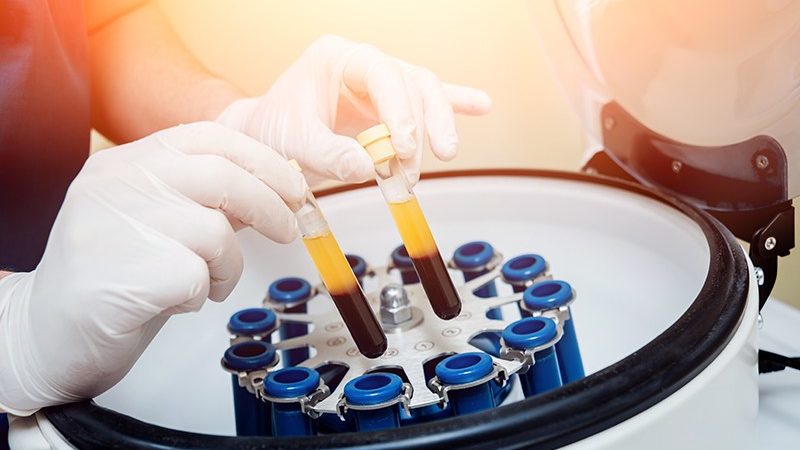Table of Contents
Platelet-rich plasma (PRP) therapy uses the regenerative capabilities of our body to heal wounds, restore joints and promote hair growth. PRP is made from the patient’s blood with the help of a centrifuge. The received substance then is injected into damaged tissue and provokes its cells to proliferate.
World-class sportsmen have been using PRP injections since the 1980s. Athletes credit it for its ability to boost injuries healing. Nowadays, more clinical trials suggest the positive effects of PRP in orthopedics. Still, as PRP therapy’s popularity is only starting to grow, PRP prices may significantly vary. In this article, we discuss how much PRP injection costs.
How much does platelet-rich therapy cost?
Scientists study platelet-rich plasma therapy’s positive effects on skin improvement, wound healing, pain relief, and more. However, since PRP is fairly new, not each insurance company covers PRP costs. The procedure is carried out in several stages that involve medical assistance and professional equipment. Therefore, depending on the healthcare provider delivering PRP, the PRP injection cost will vary from USD 400 to USD 1,500.
Your medical condition also influences the cost of PRP treatment. If you want to heal injured muscles or tendons, you’ll need two injections made within a 3-4 weeks gap. So the cost for therapy will be from USD 800 to USD 3,000 accordingly. To ease up joint and cartilage inflammation, 2 to 3 injections are required.
Is PRP treatment worth the price?
PRP treatment offers a natural, non-invasive way to treat arthritis, reduce inflammation in joints and tendons, repair muscles, and even restore hair. The therapy doesn’t cause severe side effects and reduces risks of allergies and rejection because it uses the patient’s biomaterials. PRP therapy can postpone or even prevent surgical operations for many patients.

Patients who’ve tried PRR for joint pain and inflammation reported reduced discomfort and pain relief. If you want to try PRP therapy, turn to our professionals for advice.
How to prepare for PRP injections?
Before you get your PRP injection, the practitioner will take your blood sample to prepare platelet-enriched plasma. Thus, eat enough food and drink water or you may feel dizzy after blood sampling. It’s best to avoid taking medications that influence platelet function (aspirin, ibuprofen, etc.). If you take a specific medication, tell your practitioner about it. Alcohol can also thin the blood, so consider not drinking it 2 days before the procedure. When the plasma is ready, the procedure won’t take much time.
What is the recovery time for PRP injections?
If you apply PRP therapy after the injury, your practitioner may suggest you go on sick leave for a few days. The PRP injection, however, doesn’t cause any pain and most patients can return to their daily activities after the PRP injection.
Patients who treat hair loss with PRP will need several days to heal scalp skin after injections. Since PRP injections boost natural processes in your body, they don’t cause immediate effects. However, a few weeks after injections you’ll notice inflammation reduction and an enhanced healing process.
Precautions for PRP therapy
Since PRP therapy is still under investigation, you should consult with your practitioner if the therapy is eligible for you. Patients with the following medical conditions should abstain from using PRP therapy:
chronic skin or liver disease,
- cancer,
- low platelet level,
- hypo- or hypertension.
- thyroid dysfunction,
- metabolic issues.
In most cases, PRP therapy is safe and fits patients of all ages. Anyways, it’s best to undergo the therapy under professional supervision to eliminate any risks.
Is PRP Therapy right for you?
If you are interested in taking PRP therapy, you should consult a PRP therapist first. The doctor will run the required tests and learn your medical history to choose the best approach for you. As a rule, the best candidates for PRP therapy:
- Have good general health. If you don’t have severe or chronic medical conditions, PRP treatment is good for you.
- Have mild to moderate injuries. PRP may not be effective for those who have severe conditions and require more serious medical help.
- Are looking for alternative treatment. If you’ve tried several traditional therapies but don’t get the expected results, PRP therapy might be just what you need.
We can help you go through the therapy smoothly, contact our professionals to receive a detailed consultation on PRP injection cost options.
Wrapping up
Our body can heal itself, and science can speed this process up. PRP therapy uses a natural approach to treating joints, tendons, muscles, and more. With PRP injections, damaged tissue receives more platelets which launch regeneration processes. As a result, the healing speeds up. Although PRP injection costs may seem high, the therapy may prevent invasive treatment and save your health and money.

Dr. Mill has over thirty years of experience working as a thyroid specialist and hormone expert in a US clinic. He is passionate about developing his knowledge and confirming his practice.

